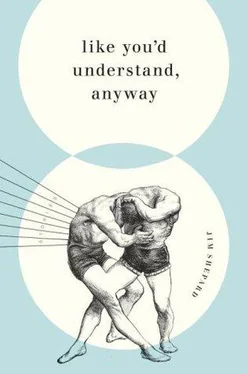15 June 1963 Night
Meeting with the Command Staff followed by dinner. Koro-lyov seemed well pleased with what he calls my preternatural calm. Kamanin remarked upon my appetite. Poor Solovyova: all through the meal I could see her thinking, If I spill the beans about her, maybe then I could go … But of course she can't. Perhaps none of us could. We've all long since understood that the only accepted way to compete was to outpace one another in cooperation and teamwork.
The R-7 has already begun its departure from the main assembly shed. It runs the length of its hydraulic platform, which is mounted on a rail car. Korolyov is dawdling alongside it in the dark like a nervous suitor. It's nosing along extremely slowly to minimize the vibration damage. Maintenance personnel poke at it, fussing and adjusting. Around dawn it will be brought upright on the pad, the service towers raised, the umbilical connections joined.
There's no question of sleep, though again we're each trying not to move. Solovyova lies on her back, gazing upward in the moonlight as if the ceiling were an affliction.
When I was twelve I told my father I was bored, and he answered, “I hate people who always say, ‘I'm bored!’” “Well, you'll never hear me say it again,” I told him. And he never did. I took long walks. I spent afternoons jumping over the runoff from storm drains. On dark winter mornings I left for school early, my steps resounding softly in the empty hallways. It was the usual sort of district school: pitiful academic standards, teachers with ungrammatical speech, fistfights between classes. But I preferred it to home. I was beginning to register that I shared many attributes with regular people. Two spirits wrestled inside me: one was the girl who wanted only to please, while the other sought to dedicate her life to something larger. Why couldn't I be someone else? Why shouldn't I imagine myself contented? I resolved to train to become someone I would like. On my thirteenth birthday I told my mother that I would probably become an arctic explorer, and she answered that she always found my conceited-ness appealing.
Korolyov like a boy on a first date appeared with flowers and a folded typescript a few minutes before we were scheduled to turn out our lights. Solovyova had just finished her toilet.
“Is this our pep talk, Chief?” she teased. Korolyov smiled to himself, riffling his typescript. “It's an inspirational talk from the Chief Designer himself,” he said. We sat, and he stood at the foot of our beds and read what he'd prepared. We were both touched by his awkwardness and care. He reminded us that this was why we had foregone marriage and children. He reminded us that he had asked us to be morally prepared for spaceflight. When it came to this kind of endeavor, woe to the egoists and hedonists, he said. For there was no one so frail and defenseless.
We both waited. “What a strange, strange country we live in,” Solovyova remarked. He chose not to respond before going on: this was not so much a culmination as a beginning, he said. He wouldn't sleep a wink tonight, but he was sure that we would. “Thank you, Chief,” Solovyova answered.
“I guess I'm finished,” he said. “That's the bed Gagarin slept in,” he added on the way out, indicating mine.
“I know,” Solovyova said. “I told her she should have it.”
He turned out the light and left. He'd been rescued from the gulag during the war and put to work in Tupolev's prisoner design bureau, where he'd become a favorite of Khrushchev's for his designs of intercontinental ballistic missiles. But his dream had been spaceflight, and he loved quoting Tsiolkovsky's dictum that the Earth was the cradle of mankind, but one didn't live in the cradle forever.
We could hear him moving about in the other cottage. “He'll be a wreck by tomorrow,” I offered, but Solovyova chose not to answer.
During our night in the maintenance room I had told Bykovsky between kisses that I wanted him to see my old farm— the far corners overrun with prickly gooseberry bushes and the pond where one could jab a stick at the green epidermis of algae and watch an aperture of black water open and close. The creek with its boulders and the dark yawning overhangs. “What a good idea,” he murmured, distracted. I'd found his mouth again, remembering a malicious-looking goat roped to a peg, and being entrusted as a very small girl with a bucket of warm, foamy milk, my father watching me negotiate it as best I could over a steep and muddy track.
16 June 1963 Morning
The doctors knocked on our door at 07:00 and inquired how we'd slept. “As always,” Solovyova answered. I was having trouble finding my voice. They supervised calisthenics before breakfast, then performed a final preflight medical check and administered an enema. Next, we stood around shirtless while they glued sensor pads to our torsos. These same doctors would also be analyzing our voice communications for signs of fatigue and stress. As always, we found their attentions unpleasant but did not want to be the sort of person who if offered an apple would complain about its size.
Technicians helped us into our spacesuits and held out paper for me to sign. One even presented his work pass. Helmets on, visors open, we boarded the bus, a matching pair of cosmonauts: me with all the luck, and Solovyova with none. We sat together in the otherwise empty seats. When the bus pulled up at the gantry's base, we peered at the infinitely high tower and cavernous flame trench. Finally Solovyova said, “I wish you all good fortune,” her voice breaking. According to tradition, one should kiss the departing traveler three times on alternate cheeks. We banged against one another with our helmets, then rose and left the bus.
There we were greeted by Korolyov and Kamanin and the Central Committee. “I'm miserable that I can't be up there with you today,” Korolyov said, smiling. He had tears in his eyes.
“Someday we'll fly together to Mars,” I told him. We hugged, and I shook hands with the rest of the Committee.
“Everyone's crying today,” Kamanin observed.
“That's it, then,” Korolyov said. Solovyova climbed back onto the bus, and I stepped up into the gantry lift. I could see her staring through the passenger window in the other direction. Then the lift doors closed and up I went.
When they opened there was blinding sun and horizon all around me. The tiny circular hatch of the Vostok and two technicians broke up the view. I tottered forward. Several kilometers away in the bright sun, some blue spruces surrounded a small white crypt with a gold cupola.
The technicians waited patiently. When I was ready, they hefted my shoulders and I swung my legs over the rim of the hatch and squeezed into the ejection seat. Then they hauled at my straps and connected the life support systems.
I checked my suit pressure and communications line. Through the latter they were piping in American jazz. Above me I could hear the hatch being manhandled into position and the screw-down bolts secured. A palm-sized mirror sewn into the sleeve of my suit allowed me to check its progress. On my right was the radio set, telegraph key and attitude control; on my left, the retro sequence switch panel.
The music stopped, and Korolyov said in my earpiece, “Fifteen minutes.” I sealed my gloves and pulled down my visor. The music didn't resume.
I sat. My orbital plane would differ from Bykovsky's by 30 degrees, so we'd approach for only a few minutes twice during each orbit. But during our encounter on the opposite side of the world, we could talk, unmonitored. He'd been in space for forty-five hours. I tried to compose my first words to him but imagined instead Solovyova on her sad trip back to the observation bunker to strip off her suit.
Читать дальше












